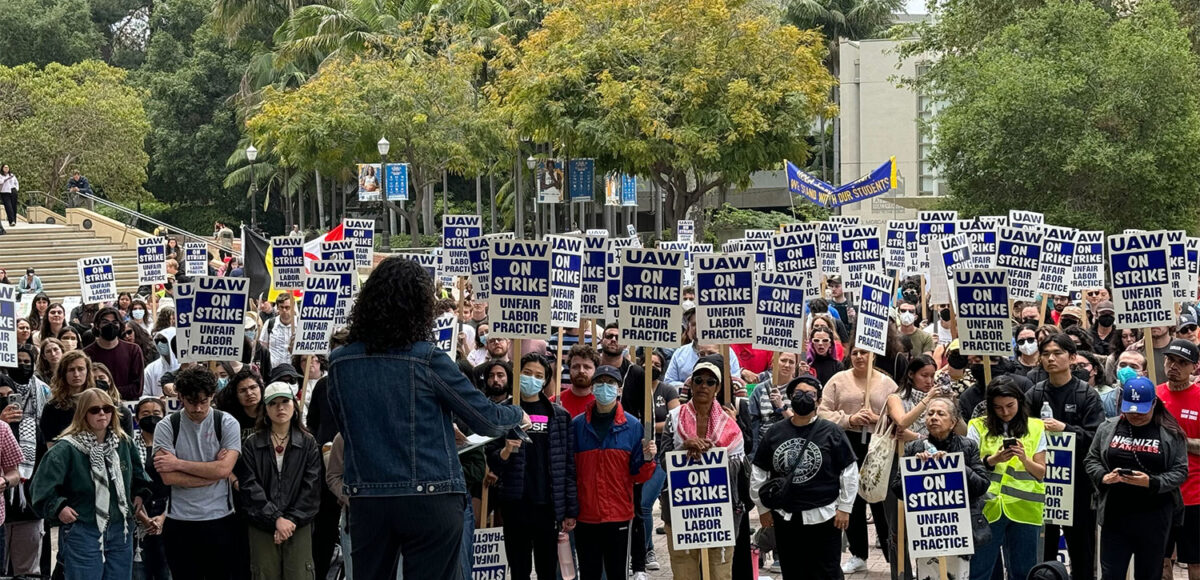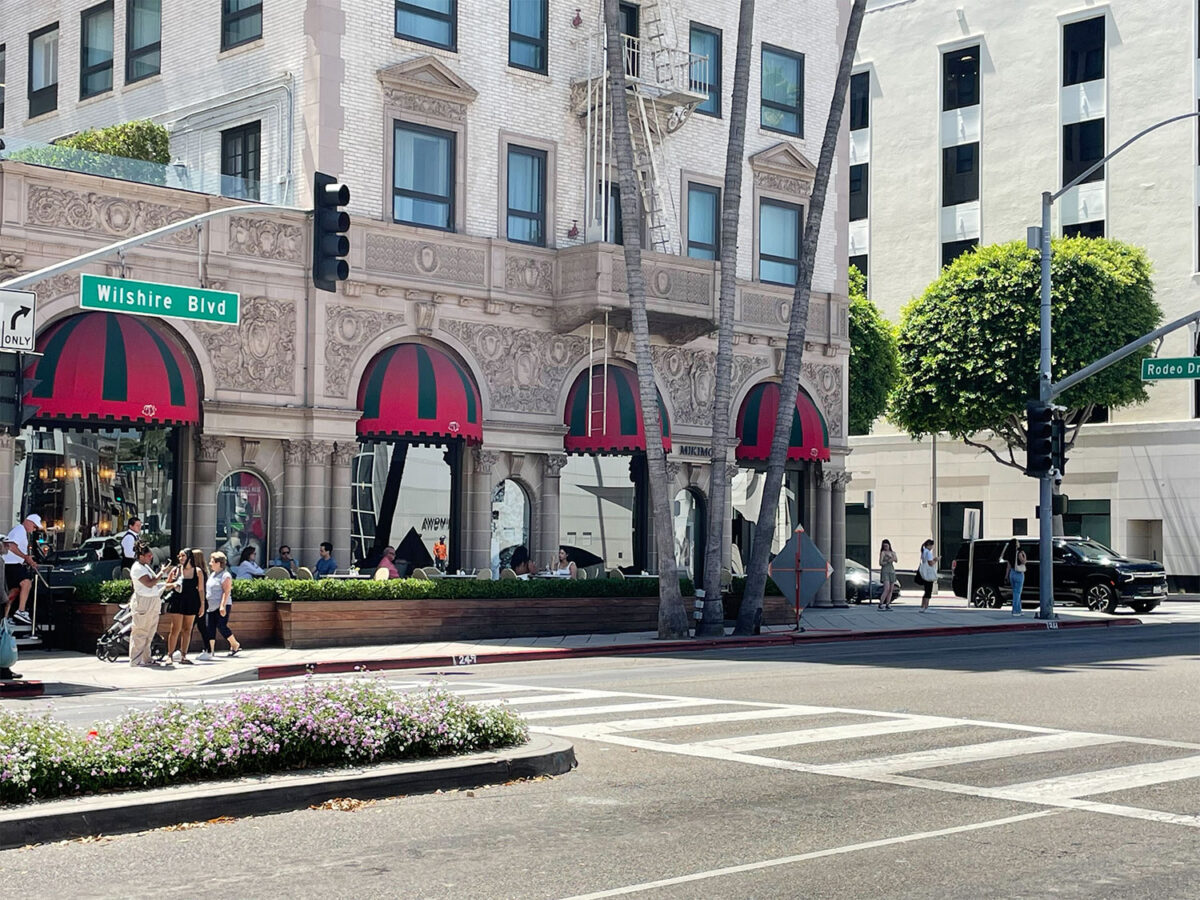Graduate workers at UCLA walked out of the classroom and onto the picket line this week to protest the UC system’s handling of pro-Palestine protests. They donned keffiyehs and toted “UAW on Strike” signs as they marched back and forth along Royce Quad, the former site of the Palestine solidarity encampment where over 200 protesters were arrested on May 2.
Their action is part of a strike organized by labor union UAW Local 4811, which represents over 45,000 workers at all 10 UC campuses. So far workers have walked out at UC Davis, Santa Cruz and UCLA, and the union says other schools may join soon.
The UC system says that the strike is illegal because it is related to political issues as opposed to labor complaints.
“UAW’s decision to strike over nonlabor issues violates the no-strike clause of their contracts with UC and sets a dangerous and far-reaching precedent that social, political and cultural issues—no matter how valid—that are not labor-related can support a labor strike,” said Melissa Matella, associate vice president of systemwide labor relations in a statement.
The union, on the other hand, says its strike is legal because the UC’s handling of protests has resulted in multiple unfair labor practices. This includes using law enforcement to “violently eject and arrest peaceful protesters,” disciplining workers who engaged in peaceful protest and changing standards for free speech and academic freedom.
“UCLA must stop its unfair labor practices and respect our rights to free speech and to peacefully protest when wanting to make changes in our workplace,” said graduate worker Vanessa Muros at a rally at UCLA on Tuesday. “We demand they stop committing violence against their workers and community members, creating an unsafe work environment.”
UAW 4811 has filed multiple unfair labor practice charges against the UC system with the Public Employee Relations Board (PERB). The UC system has, in return, filed multiple unfair labor practice charges against the union as well as a request that the board issue an immediate injunction halting the strike.
PERB declined to grant this injunction but will still be reviewing both parties’ charges and is expected to issue rulings in the next few weeks.
The academic workers at UCLA began their strike on May 28 by staging a rally on Bruin Walk. They were joined by faculty members who support the strike as well as representatives from Councilmember Hugo Soto Martinez’s office and UC-AFT, the union representing lecturers and librarians.
While several speakers at the rally spoke about unfair labor practices concerns, many also directly connected the strike to the Palestine liberation movement.
“We are here today at our university because there is a genocide underway, and we collectively refuse complicity in genocide,” said Professor of Social Welfare Ananya Roy. “We know that the future of this university rests on the ethical clarity provided by students demanding Palestinian liberation.”
Speakers also expressed their outrage regarding the April 30 attack on the encampment by pro-Israel assailants and the May 2 law enforcement clearing of the encampment—both of which resulted in serious injuries to protesters.
“The calamities of April 30 here at UCLA are the worst crisis in US higher education since Kent State in 1970,” said Political Science Professor Michael Chwe. “Our university’s fundamental values of respecting and understanding each other through peaceful dialogue and not through violence have been shattered by Chancellor Block’s actions.”
UAW members continued to rally, march and picket at UCLA on Wednesday and Thursday of this week.







